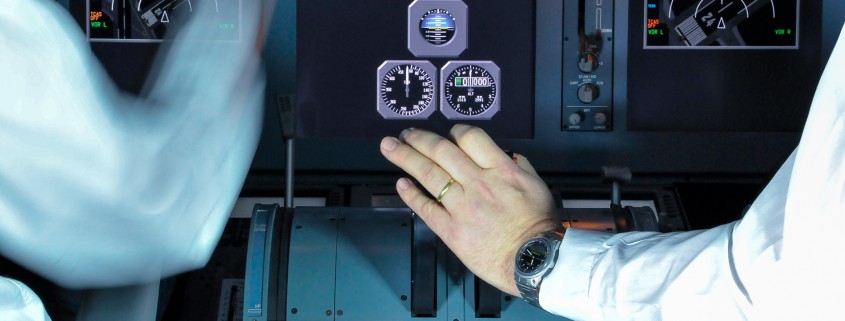Do current airline pilot training methods actually meet the standards required for modern aviation?
That is a question that the aviation industry and airlines worldwide are grappling with. Research shows that the role human error plays in incidents and accidents has remained constant in the last few years. Evidence Based Training (EBT) is a leading candidate to provide a solution to this challenge.
What does EBT involve and how can it ultimately be introduced by Dutch airlines? This was the subject of discussions held at the National Aerospace Laboratory (NLR) during a recent flight training workshop.
The workshop was attended by representatives of all of the Dutch airlines, the Dutch Civil Aviation Authority (IVW), and the Dutch Air Line Pilots Association (ALPA). An Airbus representative gave a presentation focusing on the IATA Training and Qualification Initiative (ITQI), and a British Airways flight training manager spoke about the Alternative Training and Qualification Programme (ATQP). Both of these training programmes are partly or wholly based on EBT. In addition, NLR gave a presentation on EBT and flight data monitoring. The workshop aimed to provide Dutch stakeholders with the most recent knowledge on the subject, as well as with a network for facilitating the introduction of EBT.
EBT uses flight data and training feedback to regularly adapt training sessions, by means of flight data monitoring analysis, air safety reports and instructor observations, for example. Presently recurrent training sessions follow a set syllabus, in which the content is largely determined by the requirements pre-established in aviation regulations. The use of this relatively fixed syllabus offers few opportunities to include developments for a particular organisation or operation.
The European Aviation Safety Agency (EASA) offers (airlines) the Alternative Training and Qualification Programme (ATQP) as an alternative to the traditionally prescribed ‘one size fits all’ syllabus. Because EASA guidelines for ATQP are brief, the adoption of ATQP by airlines has been limited. In the Netherlands, all airlines have taken a first step toward implementing a training programme that can more flexibly respond to the challenges posed by present day flight operations. The presentations by Airbus, British Airways and NLR, as well as the mutually developed network relationships, will contribute to a quicker implementation of EBT in the Netherlands.


